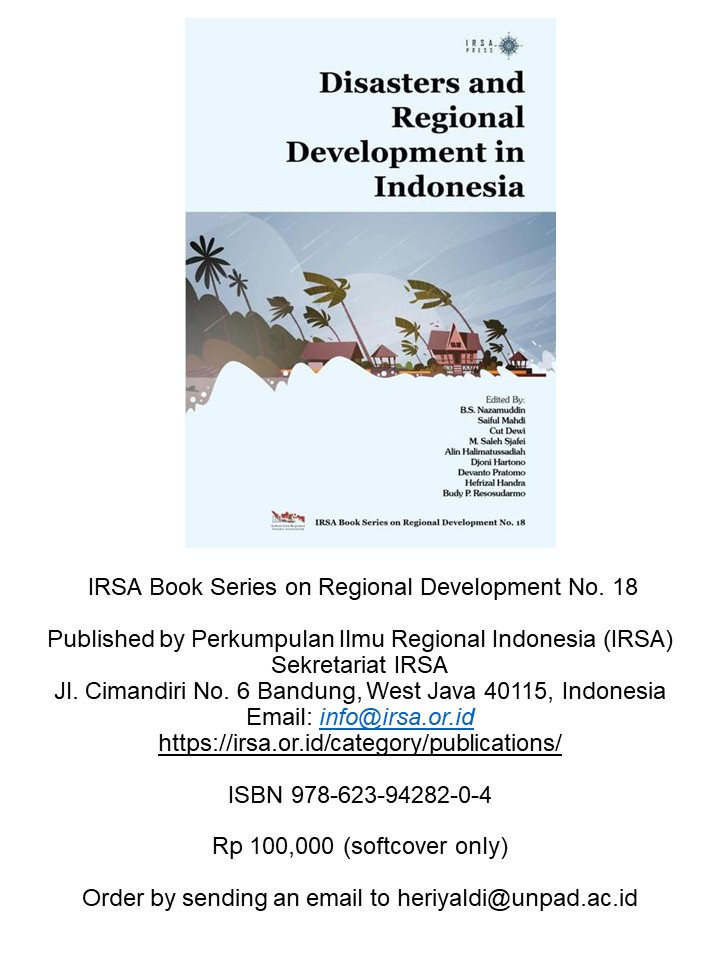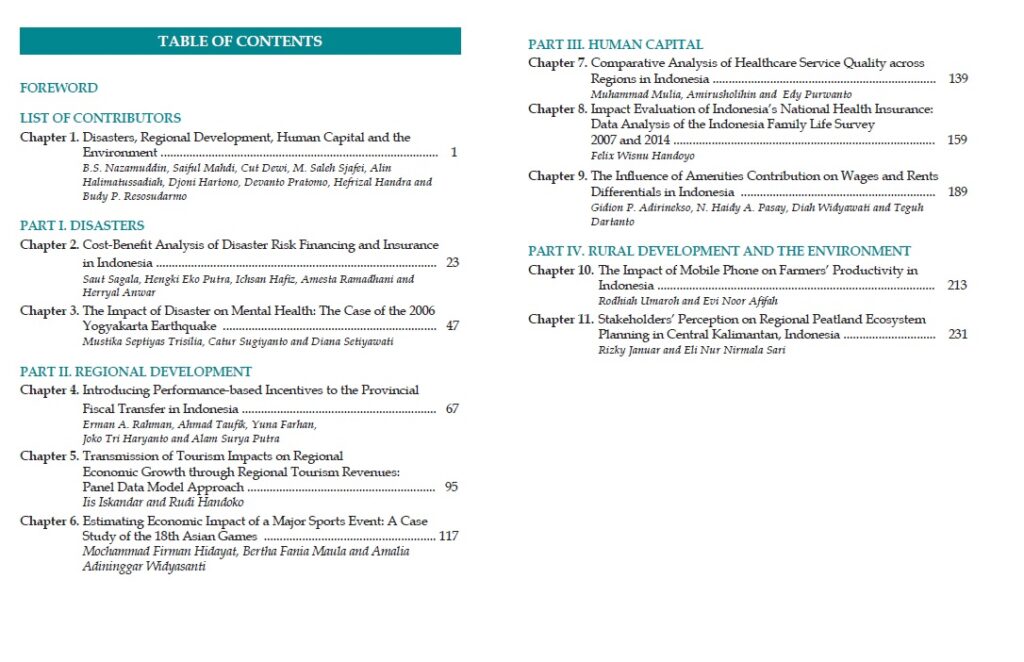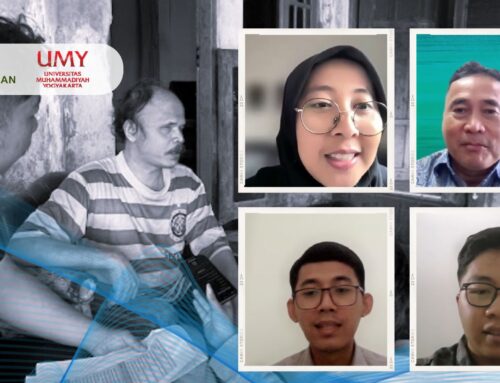 FKP hosted by Indonesian Regional Science Association (IRSA) with speakers Arief A. Yusuf (President, IRSA, and Professor, Universitas Padjadjaran), Mustika Septiyas Trisilia, Catur Sugiyanto and Diana Setiyawati (Universitas Gadjah Mada), Muhammad Mulia, Amirusholihin and Edy Purwanto (SurveyMeter), and discussant Bernadette Robiani (Professor, Universitas Sriwijaya). Cut Dewi (International Centre for Aceh and Indian Ocean Studies/ICAIOS and Universitas Syiah Kuala) chaired the seminar. Thursday, 3 September 2020.
FKP hosted by Indonesian Regional Science Association (IRSA) with speakers Arief A. Yusuf (President, IRSA, and Professor, Universitas Padjadjaran), Mustika Septiyas Trisilia, Catur Sugiyanto and Diana Setiyawati (Universitas Gadjah Mada), Muhammad Mulia, Amirusholihin and Edy Purwanto (SurveyMeter), and discussant Bernadette Robiani (Professor, Universitas Sriwijaya). Cut Dewi (International Centre for Aceh and Indian Ocean Studies/ICAIOS and Universitas Syiah Kuala) chaired the seminar. Thursday, 3 September 2020.
KEY POINTS:
- Disasters and Regional Development in Indonesia is a book by the Indonesian Regional Science Association (IRSA) which presents disaster-related issues including disaster management, sustaining regional development, improving human capital, rural development, and conserving the environment. The papers published in the book are the result of the 2019 IRSA International Conference hosted by University Syiah Kuala in Banda Aceh. Two chapters in the book were discussed during the launch, i.e. Chapter 3, The Impact of Disaster on Mental Health in Yogyakarta and Chapter 7, Comparative Analysis of Healthcare Service Quality in Indonesia.
- Due to its location, Indonesia is prone to large seismic activities, some of which have caused a significant number of fatalities and damages to human livelihoods. The country, hence, has to always be prepared for these kinds of disasters. Abilities to soften the human and economic impacts of natural shocks are crucial.
SUMMARY
- The Yogyakarta earthquake in 2006 killed 5,700 people and injured at least 40,000 people. The disaster destroyed thousands of homes and robbed community livelihoods. The losses were estimated at IDR 29 trillion. Individuals exposed to the earthquake are prone to Post-Traumatic Stress Disorder (PTSD), depression, and other mental disorders which could continue to affect individuals for more than a year after the disaster. Using the Indonesia Family Life Survey (IFLS), researchers from Universitas Gajah Mada investigated the impact of the 2006 Yogyakarta earthquake on mental health. The results show that the shock of direct exposure to the earthquake increases the score of the survivor’s mental disorder. In the short term, the affected communities usually have difficulty in terms of planning, decision-making, setting priorities, and anticipating future needs. In the long term, adults and children can feel isolated from friends and families. On the positive side, the new understanding, increased wisdom, positive priorities change, and development of strength in facing stress, which can help them later in life.
- The next discussion is about health care service quality through a comparative analysis of healthcare service quality across the region in Indonesia. The comparison is made based on patient satisfaction. A study by SurveyMETER investigated the determinants of patient satisfaction toward health services by comparing various types of health facilities in Sumatera (region 1), Java and Bali (region 2), and Kalimantan, Sulawesi, and Nusa Tenggara (region 3). Some of their findings include first, that private physicians and nurses/midwives receive the highest score of patient satisfaction. It is assumed that high satisfaction is due to good communication between patients and service providers. Secondly, the length of waiting time experienced by patients is in line with their level of satisfaction. Facilities that have a long average waiting time such as public hospitals are found to have a low level of satisfaction. Finally, satisfaction varies by age where people who are less than 30 years of age have a lower level of satisfaction.
- Professor Bernadette Robiani highlighted several key messages from the book. First, Indonesia needs an adequate insurance system which will be able to finance the physical reconstruction after the disaster. An effective mental health recovery program is also crucial, more importantly now in time of COVID-19 pandemic where millions of peoples’ mental health are at risk. Second, this book provides insight for local governments to explore sectors other than natural resources such as tourism which can absorb more labor and may increase local revenue. Third, this book provides a critique of Indonesia’s national health system which still needs to be improved. This is an important book that needs to be read by decision makers and other stakeholders as a reference for decision making especially in responding to the COVID-19 pandemic.





